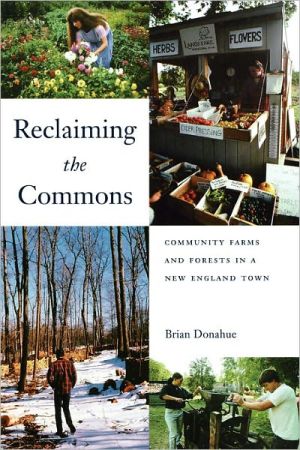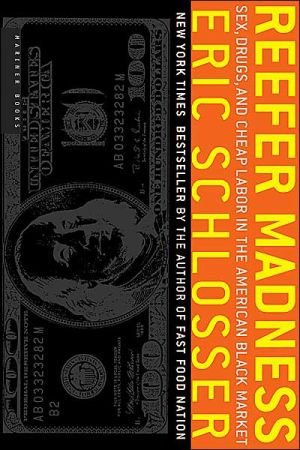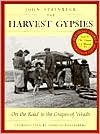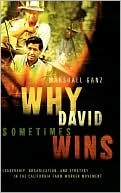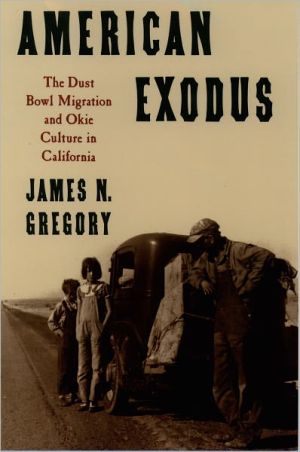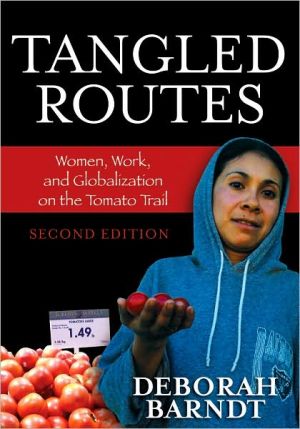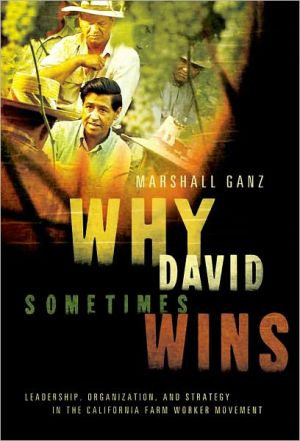Reclaiming the Commons: Community Farms and Forests in a New England Town
This book is a lively account of a community working to combat suburban sprawl, to protect a large part of the landscape as common land, and to enjoy the land productively in an ecologically sustainable way. Based on the practical experience of one New England town, the book urges suburban environmentalists to go beyond preserving open space to actively engaging people with the places where they live.\ Brian Donahue, an environmental historian, in 1980 was a founder of Land's Sake, a...
Search in google:
This book is a lively account of a community working to combat suburban sprawl, to protect a large part of the landscape as common land, and to enjoy the land productively in an ecologically sustainable way, Based on the practical experience of one New England town, the book urges suburban environmentalists to go beyond preserving open space to actively engaging people with the places where they live. Bob Schildgen A wonderful addition to the literature of urban and small-scale farming.
Reclaiming the Commons\ Community Farming and Forests in a New England Town \ \ By Brian Donahue \ Yale University Press\ Copyright © 2001 Brian Donahue\ All right reserved.\ ISBN: 0300089120 \ \ \ \ \ Chapter One\ \ \ Green Power and Land's Sake\ \ \ My first day at Green Power Farm was a good one. I rode the Boston and Maine commuter train from Somerville to Kendall Green station in Weston. It was a crisp fall morning in October 1975. Arriving at Green Power through a back corner of the farm, I came upon Bill McElwain behind a large oak tree seeing a man about a dog. He was startled to actually see a man, me, emerging from a nearby subdivision. Suburban farmers learn to ignore their surroundings.\ I recognized Bill because I had been introduced to him the previous week by my Brandeis advisor, Larry Fuchs, a resident of Weston and a fan of Bill McElwain. Green Power Farm was a community farm project run by the Weston Youth Commission, part of town government. I had arranged to work for Green Power one day a week and to write a paper about it for Larry for independent study credit. (I never wrote it--then again, maybe this is it.) Bill was then in his midfifties, a vigorous man with sharp, grizzled features, a hawk nose, piercing blue eyes, and sparse white hair. Bill was and is still a blithely positive anarchist whose operating philosophy in dealing with obstacles to farming the suburbs was, "It is easier to gain forgiveness than consent." The name Green Power itself was emblematic of the farm's era and purpose: this was a farm devoted to radical social and environmental change, and somehow it had sprung up in an affluent suburb. I couldn't wait to learn more about it.\ Bill led me into the field and introduced me to three Picker Power volunteers, middle-aged women who helped harvest produce in the fall after the kids who worked at the farm all summer had gone back to school. "Brian," said Bill in a grand mock-courtly manner, "je vais vous presenter Madame Moon, Madame Mercuri, et Madame Fish!" It was like being introduced to a coven of matronly suburban nature worshipers out tilling the good earth in the dawn of the New Age. It turned out those really were their names. Did they realize they could have conjured a cone of astral power to descend upon Weston if they had simply joined hands in a ring?\ Rather than enact a neopagan rite, we pulled carrots. The ground was cold and crusted from frost. We loosened the carrots with spading forks, pulled green and orange bunches and swished them in a tank of icy water to rinse off the dirt, and packed them in wire crates bound for free lunch programs and tenant union coops in Boston. I knew that a garden carrot tastes better than a store-bought one, but I was not prepared for the sweet crunch of a carrot in the New England fall. I couldn't believe it was really true that something so much better than what I could normally buy came right out of the ground. The morning was chill and my fingers were numb, but my skinny idealistic body was warm. Crows were calling over the adjacent woods of bronze oaks and dark green pines in the bright morning light, and within ten minutes I was hooked on farming. I ate and crated carrots all morning.\ In a way the first few years of my learning to work the land were like that day. I have seen the same excitement seize other young people since--amazement that even in the late twentieth century you can find yourself farming. You've got your hoe and a few acres of dirt, and there you are. Naturally for many people this gets old after one season. But for some the experience grows richer and deeper each time around, not in spite of but by virtue of repetition--every year, memory and anticipation connect the moment to the eternal. When I ate that first carrot I realized that many of the things that had appealed to me intellectually about farming were attainable in practice. This was a relief, more than anything else. I foresaw what I would be doing for the next few years.\ After lunch at Bill's kitchen table--the first of a thousand lunches I would eat there--he turned me over to his assistant, a lanky, energetic young woman named Susie Ashbrook. We drove Bill's trademark turquoise Toyota Land Cruiser to the sugarhouse, which stood next to Weston's Middle School. There we met a troop of Brownies and went apple collecting. The apples had fallen in an old orchard where a housing development had recently been built--the new residents' backyards were littered with heavenly fruit for which they apparently had no use. We ran around with the Brownies picking up apples, hauled a dozen or so bushels back to the sugarhouse, dunked them in a tank of water to clean them off slightly, and squeezed them in an antique press. Voilà: cider.\ Like the carrots, the cider knocked me out. It was without question the best I had ever tasted. I think the secret was that most of the drops we collected were tart Baldwins. Once again, Green Power subversives had gone out into the unsuspecting suburbs, redeemed a forgotten resource, and magically converted it into something that surpassed what you could buy in the local supermarket. It was an idea of great power. Who could tell what other wonders this suburban town might contain, wonders that a little imagination and initiative could unlock? In a few months junior high kids would be boiling maple syrup from sap collected all along Weston's scenic roads. What other people fantasized about in an idle moment and dismissed as impractical, this guy McElwain was putting into practice.\ After the kids left, Susie and I hosed down the cider press and drove back to Bill's with a trailer load of spent pomace. Bill's house, on the Boston Post Road in Weston Center, had a side yard choked with agricultural implements: assorted trailers, a manure spreader parked under a hemlock tree, an antique stake-body truck, a big pile of pumpkins in front of a few dozen boxes of winter squash covered with old carpets, a platform scale hanging from a tree stump with the prices of pumpkins and squash scrawled in green magic marker on the back of a cigar box and a coffee can full of change nearby, assorted stacks of scrap lumber, cardboard boxes, and wire crates. To many it was an eyesore, but the town had not made the permanent commitment to Green Power that would have included buildings to house equipment, so the farm ran out of Bill's yard and the neighbors just had to live with it. The door to Bill's house was always open, and people banged in and out 365 days a year, 12 hours a day, on the way to cultivating the far corners of Weston. You can count on this if you start a community farm: your house will become a community farmhouse, willy-nilly.\ The last thing Bill and I did that autumn day, as the sun went down, was to hitch the manure spreader to the Toyota and drive it to a small orchard near the Green Power fields in the northwest corner of town. Bill wound the spreader among the old trees, spreading pomace. It was a perfect way to end the day, putting the spent apples back on the land as fertilizer, in an orchard no less. I was moved by this gesture of fealty to the golden ecological rule of return--it gave the day a nice feeling of completion. Pull carrots in the morning, press cider in the afternoon, return compost for the next harvest at the close of day. For me, an imagined way of life had suddenly acquired form.\ That evening, I stumbled up the stairs to my third-floor Somerville apartment with a gallon jug of cider in one hand and a bunch of carrots in the other, beat to the socks but exhilarated. I wrote to my high school comrade Fred, "I really enjoyed the work--of course, conditions were ideal--cool, and fairly light work; and a beautiful morning in a big field--and me getting the college cleanness off my hands and mind. I'd have been happy digging fenceposts." For the first time in months, I fell asleep as soon as I lay down and slept soundly. Farming was the life for me. I began going out to Weston several times a week, neglecting my other courses. I was soon joined by my former roommate Brad Botkin, who had dropped out of school and was looking for something to do. He came to Weston with me one day and caught the agriculture bug, too. We slipped easily into the Green Power program, which seemed to have been expecting us. Within a few months Susie Ashbrook took a job directing a fledgling community farm in neighboring Natick, so I took a deep breath, dropped out of Brandeis, and assumed her position. For the next three years I split this $6,000-per-year job either with Brad or with Sonia Schloemann, a recent Green Power graduate who found farming more attractive than the University of Massachusetts. We split the salary, but most months we both (or all three) worked full-time and then some because we liked what we were doing so much we would rather be doing it than anything else. That was my introduction to suburban community farming.\ \ \ In those three years I learned basic agricultural skills: how to drive dump trucks and tractors, back a trailer, shovel shit (more than a skill--an art), burn brush, hang buckets and boil maple syrup, build sheds and makeshift greenhouses, nail apple boxes, prune apple trees, move irrigation pipe--and cultivate fifteen acres of vegetables. Mostly I learned the dawn-to-dusk tenacity that farming requires, which can be summed up as the ability to recognize what needs to be done and the willingness to keep doing it. What I remember best, though, is the sheer excitement of having gone from fantasizing about living on the land to actually farming. It was breathtaking. "I was riding down the field the other morning," I wrote to Fred, "working the levers on the spreader (spreading lime), looking around, when suddenly it hit me: 'Well. I'm really farming. I'm a farmer.'"\ One of the great things about farming at Green Power was the variety of the work we did. Tasks that would have become mind-numbing if done day after day seldom had the chance to bore us before we were on to something else. This is, of course, the antithesis of the industrial ethic. Often we tackled half a dozen different jobs in the course of a day. Some were planned, some--like fixing the tool we were working with or fixing something else so we could begin fixing the tool we were supposed to be working with--were unanticipated. Some days we seemed to be working backward, getting farther and farther away front whatever it was we had set out to do in the morning. E. B. White once called farming an "interminable errand," and I can confirm that. Mostly it involves getting something unstuck. Even when we settled into some steady task for a few days, the demands of the shifting seasons guaranteed that we would soon need to catch up with something else. Good farmers relish the complexity of constantly shifting priorities among interdependent variables. It comes with the milk.\ The farm year began with pruning an overgrown apple orchard we were trying to renovate. This charming work appealed to our sense of being in farming for the long haul, tied into the seasonal round. "I really enjoyed the pruning, though it was long, cold work over the snow, because I can picture them blooming in a few months," I wrote. Bill had hired an itinerant orchardist from New Hampshire to supervise the pruning. He paid him by brokering a massive pruning campaign in another old orchard that ran through the yards of the housing development on Applecrest Road, where we had picked up apples to make cider in the fall. Our part of the deal was cleaning up the mountain of apple brush that was generated, and it was here I learned that hauling brush especially apple brush--is more work than cutting it. I learned to back a trailer, too, which cost one mailbox and part of a fence. It was also on this job that Brad and I spent an hour spinning our wheels on a sheet of ice at the dump with a fully loaded trailer behind us. After trying to activate the four-wheel drive by pulling every knob and lever we could find inside Bill's jeep, it finally dawned on us that locking hubs were located outside the vehicle. Thus we learned the routine skills that preadolescents grow up with on the farm. It did not come with the milk in our case.\ We began syruping in February, although we had been working on the sugarhouse since fall. We had put in a new brick floor and hauled truckloads of refuse lumber from an old barn to use as kindling. The sugarhouse, built the year before, was a rustic board and batten building made of locally milled white pine, surrounded by mountainous woodpiles and makeshift sap tanks. It stood beside a new concrete fortress of a middle school, built in that seventies style of schools designed to withstand insurrection. This little wooden building, in which thirteen-year-olds were encouraged to pitch cords of wood into a roaring firebox and to tend boiling sap in a twin-pan evaporator, may well outlast the middle school. Weston's roads were lined with magnificent sugar maples, and as the weather warmed we took crews of students and decked the trees with taps and buckets. When the sap ran, we hauled it back to the sugarhouse in a collecting tank behind Bill's jeep, taking delight in stalling commuter traffic as we crawled over the hills of Weston with our sloshing load. In a six-week boiling season we reduced about ten thousand gallons of sap to a couple of hundred gallons of syrup that was eagerly purchased by Weston residents. The final product was not too fancy, but the town relished having buckets on the maple trees and middle-school students making syrup.\ As the frost came out of the ground in March, the last spring snowstorms passed, and the days began to rapidly lengthen, our attention turned to our main enterprise: the farm on Merriam Street. For several weeks in April we hauled horse manure to the farm almost nonstop. Bill had gotten access to a pair of surplus dump trucks from the Highway Department. We hauled mostly from a large boarding stable in neighboring Wayland, which had a mountain of manure that went back years. Using one of the town's smaller front-end loaders, we kept the trucks shuttling all day, one person loading and the other driving. We dumped the manure in windrows at the farm, and once the ground was firm enough set about spreading it in strips across the fields, pulling an old horse-driven manure spreader behind the tractor. We also cleaned up piles at a number of private stables in the neighborhood of the farm, forking the manure straight into the spreader and then running it directly onto the field behind Bill's ubiquitous workhorse Toyota. I liked seeing how fast a couple of energetic people with the right tools (long-handled, six-tine manure forks) could fill the spreader by hand in a tight spot. I also enjoyed mastering the rhythm and angles of operating the machine loader on a big pile. There was a place for each.\ In April, snow peas, onion sets, and spinach went in the ground. Early in May we planted the winter squash and pumpkin seeds in widely spaced hills, covering several acres. Bill began putting in a dozen or two rows of sweet corn every ten days with a tractor-drawn planter. Soon we were making the first plantings of small-seeded stuff, carrots, lettuce, beets, and seedbeds of collards, cabbages, and other brassicas, using the antique-looking Planet Jr. push-planter with its adjustable seedplates. By the end of May it was time to set out the tomato, eggplant, and pepper seedlings we had started in improvised greenhouses and to put in the first cucumbers, summer squash, and beans as the soil warmed. And it was past time to keep ahead of the weeds.\ And so it went into early summer, with more plantings, transplantings, and cultivation. There was a nice rhythm to the successive plantings, many crops at different stages. It was all like an intricate dance. The greens burst from their beds so that by July fifteen acres were covered with crops. The amount of work was staggering. Bill was often out at four in the morning tilling ground for the day's planting, and Brad and I rolled in at six or seven. In the afternoon, Bill generally turned to administrative chores or to writing his newspaper column, while we worked on, sometimes into the evenings, trying to stay on top of it all. There were peas and tomatoes to be trellised, irrigation pipes to be set up, moved, and repaired when they blew out, and of course the constant pressure of cultivation, hoeing away the tiny pigweed and lambsquarters before they could gain a toehold. Luckily in May a few farm veterans returned from college to help out--an engaging coterie of McElwain protegees from previous years, several of whom would go on to careers in agriculture. Their motto was "Women Will Feed the World!" Good news for the world, but even better news for Brad and me. Thanks to Green Power, Weston was not quite the social wasteland it might otherwise have been for two guys in their early twenties.\ By mid-July the weeds were slowing down and harvesting was picking up. Now we had big crews of schoolkids, some of whom were more helpful than others. Three mornings a week we boxed up collard, turnip and mustard greens, cucumbers, squash, and tomatoes and sent them into Boston for one dollar a crate. Sometimes the city groups we dealt with sent out a van, and sometimes we loaded up the jeep and a trailer and drove in to various churches, housing projects, and food coops in Roxbury, the South End, and Jamaica Plain. This was the era of antibusing riots and great racial tension in Boston, so we were acutely aware that we were involved in a bold and timely mission of good will. One particularly heady morning Brad and I dumped a load of manure at the site of a new community garden in Roxbury, just a few blocks from where a white man had been dragged from his car and beaten into a coma a week before. There we were in a truck full of steaming horse- shit with "Town of Weston No. 6" engraved on the door. "If this goes awry, you know where they'll find our bodies," I said to Brad. But working for Green Power meant living a charmed life, and we and our manure were graciously received.\ Green Power was tied in with a small but vigorous group of urban activists who were making connections between gardening, food, and community. It was a pleasure watching these energetic organizers in action at meetings, conferences, farmers markets, and feasts. To these people, Bill McElwain was a shining star. That this unlikely character had managed to get kids from Boston's most affluent and exclusive suburb growing fresh food for the inner city just blew people's minds. The food wasn't much by itself, but it seemed to suggest that anything was possible if we just kept working at it. Bill was a folksy, humorous speaker, and people loved hearing him exhort them to get children's fingers in the dirt and build more links between the city and the suburbs. Bill knew how to play the country bumpkin and say outlandish but oddly sane things in ways that grabbed people's attention. With Bill, you were never quite sure if you were listening to a New Hampshire dirt farmer or a courtly physiocrat with a little Tom Paine rabble-rouser thrown in for good measure. Picture Pete Seeger with a manure spreader instead of a banjo, and you get the idea. It was great fun for Brad, Sonia, and me to tag along to these gatherings and share in the glow of Bill's achievement.\ By September, the kids were back in school and things quieted down on the farm. In a mild fall we were left with crops that were still yielding heavily and not enough hands to pick them--hence, Picker Power. On a Saturday toward the end of the month we cranked up the cider press, cooked up a big pot of beans, and called out our volunteers to harvest the pumpkins and winter squash. All morning people helped box squash and load pumpkins into the truck, and we rolled them down to Bill's driveway. There we set them on pallets, covered them with old rugs against the frost, sold them, and shipped them out. Except for the late carrot crop and a few collards that hung on after frost, that about did it for the farm year. We cut down the tomato strings, disked in the stubble, sowed winter rye, and turned our attention to hauling more manure, working on the sugarhouse, and making cider.\ There were precious few apples to be picked up in Weston in 1976 because unfertilized apples are prone to biennial bearing and the past season had been a big one. Instead we bought culls from commercial orchards in Harvard and Bolton, towns farther west. Sometimes we took along crews of kids to pick up drops for ourselves, and sometimes we just had the orchard drop a few bins in the trailer. We pressed cider three afternoons a week at the sugarhouse, and Saturday morning on the town green or at Bill's house. Because the cider was made primarily from Macintosh and Delicious apples instead of Baldwins, it was sweet and insipid. Few of the orchards were growing the good old New England varieties anymore. But the cider was fun to make, and we didn't have any trouble selling it.\ If the apples weren't strictly local, at least the boxes we put them in were. The winter before we had helped clear some white pines for a couple named Sy and Ellie Reichlin, who had an old barn and decided they wanted to restore the pastures suggested by the old stone walls on their property and keep sheep. Bill had the pines bucked into short lengths and hauled them up-country to a box mill in old Number 6. (The trip led to one of the most infamous incidents in Green Power history. Selectman Harold Hestnes received a call from a New Hampshire state trooper who wanted to know why a Town of Weston dump truck sporting 1955 plates was cruising down the turnpike with no lights. Just how this inquiry got routed to Harold was never quite clear to me, but it is a story both Bill and Harold still love to tell. It is enshrined in the mythology of our town--it celebrates Bill's audacity and marks the outer limits of official tolerance.) On rainy days we trimmed those boxboards on a table saw and nailed up apple crates. They were good boxes--I still have a few of them. My wife, Faith, uses one to store yarn that came from our sheep, which later grazed on the very pasture from which the pines were cut. So the circle is still unbroken.\ My first year of farming was about over, and I was pleased with it; overjoyed, in fact. I was gratified that my life was now following the natural cycles of the earth and was free of the artificial orbit of academia. One morning in November I was hauling manure with Brad from Wayland, a neighboring town, and it began to snow--it was shaping up to be one of the coldest winters of the century. I wrote to Fred, "This snow makes a nice wrap-up for my year's work here--seeing the farm closed down and left to lie--goodbye and keep cold--while we bring in manure for next year--anticipating the seasons while we move in obedience to them." Yes, it is a cliché, but it's a good one to live by.\ \ \ During the dark months when the workdays ended early, we often stayed for tea in the McElwains' kitchen. There was a big oak table and a handsome six-burner wood range that soaked us in warmth after a day out in the cold. Bill, his wife, Katchen, or his daughters Louisa and Amy would serve Earl Gray or Lapsang Souchong tea, elegantly warming the teapot first with boiling water. We talked about the state of the world and about Green Power and what we would do next. In the 1970s, we took it for granted that industrial society was on the downslope. "This is the time when the new world has to miraculously surface in the midst of the disintegration of the old," I wrote to Fred. True, Weston didn't seem to be disintegrating very fast, but we assumed that energy shortages and other ecological shortcomings would shut down suburban growth before too long. Visionaries at the New Alchemy Institute on Cape Cod and a loose network of back-to-the-landers and organic farmers across rural New England were working toward a future based on solar energy and aquaculture, organic farming and composting, wood heat and simple living. We were part of that movement. Our mission was to develop a model of an alternative local economy right there in Weston. This would become a necessity if and when industrial society went bust and would demonstrate a healthier, more attractive way to live in the meantime.\ Green Power seemed to be going from strength to strength. The farm had been steadily expanding, the maple syrup was the toast of the town, people lined up for the apple cider. Reliance on local resources had been reborn. So far it was but an infant, but there seemed to be ample room to grow in Weston. The town owned some two thousand acres of conservation land, and young people in town were complaining that there was nothing to do. We would give them something to do. We envisioned a year-round farm center that would work closely with the schools and might also offer a work-study program to students who wanted to take a year off before going on to college. We could produce food for school cafeterias and recycle food wastes in methane digesters. We could build a greenhouse and a barn and integrate livestock from chickens to fish, from pigs to grazing animals in a tight system. We could manage the town forests to produce firewood, lumber, and even food crops like hybrid chestnuts, black walnuts, shellbark hickories, and sugar maples. We could experiment with solar and wind power and maybe even tap some of Weston's small streams for hydropower. Winter evenings we discussed what other groups around the country were trying and spun out ideas of our own. "We're going to garden this town until it sags with fruit," I wrote to Fred at the end of my first year in Weston.\ The best of it was, we were doing this in the suburbs, right in industrial capitalism's backyard. It wasn't necessary to flee to the edge of the wilderness to experience these alternative visions. By working in the suburbs, we would build a model where people could see it. Black Elk said that once you had a vision, you had to perform it on earth for people to see; and Wendell Berry warned that the vision was easy, the performance difficult. Green Power was our performance. "I think getting our solutions into the mainstream is the job, not creating a counterculture," I wrote Fred. We weren't trying to work within the system in the usual sense of lobbying Congress: we were up to something much more subversive--involving people with radical ecological alternatives where they lived. We could strengthen our connections with urban gardeners and farmer's markets, maybe bring city kids out to our farm center, too. By involving children in all these productive activities we would make Weston a more vital community, instead of the mere residential enclave it had become. In our view, a bedroom community was a contradiction in terms, an impossibility.\ That was our vision. But what with the farm, cider, and syrup, Green Power already had in place a year-round program that absorbed all the energy of its existing staff. Could we muster the political support to expand the program? This turned out to be a much more difficult performance than I anticipated. Green Power Farm was a product of the social activism of the 1960s and of Earth Day environmentalism. Founded in 1970, Green Power began as a voluntary effort to grow food for the inner city and turned into a town-run program for young people. But times change. By the late 1970s, Green Power's place in Weston was being called into question.\ Green Power was the brainchild of one remarkable man, Bill McElwain. Bill was a Harvard graduate and had been a New Hampshire carrot farmer, a private school French teacher, and an urban low-cost housing activist. During a family bike ride in the fall of 1969 the proverbial light bulb went on in Bill's head. As he and his family rode down a dirt lane off Merriam Street, they discovered a large, weed-covered field owned by a Jesuit seminary called Weston College. Nearby was another field where a commercial grower had for some reason left a lot of cabbage to rot. Here were good food and good land going to waste in Weston, while people in the inner city were going hungry. Wasn't affordable food as central to people's well-being as affordable housing? A quick comparison of urban and suburban supermarkets revealed that produce cost more in the city and was of lower quality. The Green Power idea was born.\ On Earth Day 1970, a group of Weston residents responded to an article Bill had written in the Town Crier and gathered on a pine knoll next to the idle field. Bill proposed to utilize suburban land and volunteer labor to grow food for the inner city. It was an audacious idea that fit the tenor of the times. Weston College made the land available, and that year a crew of young volunteers hauled manure and cultivated two acres of carrots, beets, cabbage, tomatoes, and summer squash, battling the witchgrass they had stirred up. When the crops began to ripen, they packed a van full of produce, and Katchen drove it into the Orchard Park housing project in Boston and simply gave it away. They arranged to deliver produce regularly to the project's senior center. The food was distributed free, although both city people and suburbanites made coffee-can donations to help with the costs.\ From this spontaneous beginning Green Power Farm grew along two main lines: supplying fresh produce to the inner city and involving suburban young people with the land. Four acres were cultivated the next year, and the farm kept expanding through the seventies until it leveled off at about fifteen acres. An acre or two were devoted to a community garden of individual family plots that is still going strong today. At first Green Power's produce was given away to a number of city programs with whom Bill established connections. By the third year a standard price of a dollar per crate was established--still a fantastic bargain. Soon, food also began finding its way into the city by another route. Women from Orchard Park came out to Weston a few times a week to help with the harvest and in exchange picked vegetables for their own families. After a few years more people learned about Green Power and began driving out to pick for themselves, and a flat rate of five cents a pound was instituted. We later raised it to ten cents, still a very good deal. By the time I went to work at Green Power in the mid-seventies as much produce was leaving the farm in private cars as in big shipments of crates.\ Besides providing low-cost food for the city, Green Power Farm offered Weston's young people a chance to do community work. About the time Green Power was founded, the town of Weston appointed a Youth Commission because of growing concern about teenage alienation and drug abuse. Showing good sense bordering on genius, the commission (or YCom, as we fondly called it) hired Bill McElwain as its project director. Suddenly, this old anarchist was a government employee. He organized bike trips, outings to the inner city, and a recycling center at the town dump. Shortly thereafter, the town acquired the land upon which Green Power was located as part of a townwide land-buying binge. Green Power was incorporated as a Youth Commission project, providing a salary for Bill, a budget for seed and fertilizer, and enough money to pay the young farmworkers small wages. This attracted more reliable help as the volunteer idealism of the sixties faded. On the other hand, becoming a municipal program meant that legally any income earned by Green Power had to be returned to the town general fund, and this imposed at least theoretical limits on Bill's freedom of action.\ Green Power became, from Weston's point of view, primarily a program for children run by its Youth Commission. Every summer a few dozen teenagers and preteens worked several mornings a week at the farm, planting, hoeing, and picking. From Bill's point of view, of course, the educational aspects of the program were important but secondary--or maybe I should say, derivative. Kids should be given the opportunity to do productive things to improve the world, not simply have learning poured into them like so many empty vessels, was Bill's educational philosophy. They would feel valuable if their efforts were valued. Officially, all the children we worked with were at risk teenagers with incubating cases of middle-class angst. We did give a fresh start to a few kids who were at loose ends or even seriously messed up, but the truth is for the most part we got the best-adjusted, most highly motivated kids in town. For a few years we even received a small grant from the State Department of Mental Health--Division of Drug Rehabilitation. This helped pay my salary, so I was assigned to take care of the paperwork. I dutifully recorded all the children who worked at Green Power as "potential drug abusers," which I suppose all humans are. Although this was a bit of a stretch, the good liberals at DMH were happy to allocate a small part of their budget to a preventative program like Green Power. They believed in their hearts that if the kind of community engagement we were offering young people were more common in our society, most of the hard-core human misery the bulk of their budget went to combat with so little effect would not develop in the first place.\ Certainly most members of the Weston Youth Commission believed this as well, but many other people in Weston did not. They thought the Youth Commission in general and Green Power in particular were a waste of money, not to mention a textbook case of creeping socialism that undercut all basic American values. Bill's cheerful anarchism did nothing to discourage this. His column "Thinking Small" in the Town Crier was enjoyed by most of its readers for its outlandish proposals--things like having middle-school students build affordable housing out of pine logs harvested from the town forest, so that teachers could live in Weston. You could never quite tell when Bill was serious and when he was just making a point. This didn't make life any easier for members of the YCom, who had to answer for what Green Power actually did. They dreaded coming to their monthly meeting and being informed that those log cabins were already half-built.\ As we looked to expand Green Power into a model of ecological farming and local self-reliance, it became obvious that we were institutionally misplaced. The YCom supported Green Power but did not share our radical vision of an eco-community rising where a wealthy suburb had once stood. In any case, land management on the scale we were contemplating fell more properly within the jurisdiction of the Conservation Commission. The YCom was comfortable with Green Power as it was--the thought of its getting any bigger made them a bit uneasy. And they knew very well that the town would not support an increase in Green Power's budget. Bill McElwain's freewheeling style may have succeeded in creating a program like Green Power where no one else could have imagined it but wasn't going to be able to take it any further. Green Power had reached the limits of its natural growth.\ Bill had a second heart attack in the spring of 1978 and went in for bypass surgery that summer. I was officially made acting director, but in practice Brad, Sonia, and I ran the farm together. We managed to keep things going, but it was a hard growing season. Far from taking on new challenges, Green Power was struggling to stay afloat. "It's been a long, hot, troubled summer, and vegetables are boring," I wrote to Fred in August. Brad and Sonia weren't much interested in taking directions from me, and when Bill returned in the fall I discovered I wasn't much interested in taking directions from him. I also discovered that Bill no longer had much interest in expanding Green Power--he, too, was comfortable with it as it was. Bill's boundless creative energy was beginning to turn toward his land in New Hampshire, where he envisioned a larger, rural-urban cooperative project that eventually became Nesenkeag Farm. Green Power had become root-bound: if it was going to grow into something bigger, it needed to be transplanted to a bigger pot.\ Green Power was self-limiting. Weston would tolerate Green Power as a child, but never accept it as an adult. Eventually, when Bill left the scene, the town was going to kill the whole thing. This became ever more clear as the property tax revolt of the late 1970s set in. All the wonderful new projects we had dreamed of, which seemed no more miraculous than what Bill had pulled off already but merely extensions of the same philosophy--the orchards, greenhouses, fishtanks, and tree crops--were never going to be funded. To do more of those things, we had to find a way of doing business that went a lot further toward covering its own costs. This seemed especially true if we expected other towns to follow our lead and try similar things, which is what would make our model meaningful.\ Green Power was a bold pioneer but not the most sustainable model for a community farm. It wasn't even an adequate response to the problem of making good food available to the inner-city. It was a decent act of charity with which the burghers of Weston were perfectly comfortable. Having mechanisms to get good food to people who are indigent is a worthy goal, but lowering the price of food is no way to improve the lives of working people in general. It is true that fresh produce remains more expensive and harder to find in poor areas like Roxbury than in affluent ones like Weston. But the main reason poor people can't afford good food is that they are poor, not that food is expensive. We don't need to lower the cost of food any further in this world, we need to change our economic and political systems so that not so many people are trapped in blighted communities where they have so few opportunities to eat and live well. I don't know any easy ways to do that, but I do know that the big problem with American agriculture is not that food is too expensive, but that it is too cheap--and very little of what is spent on food returns to the farmer. Most of it goes to the companies that manufacture and pour on the syrup and grease along the way.\ Really good, healthful food is culturally undervalued by almost all segments of our society, rich and poor alike. What we need are consumers who make decent livings and have the sense to buy good food as directly as possible from the farmer, and farmers who make decent livings by growing and selling good food, not just raw material for the food industry. The low-cost production of food as a mere sweetened fuel drives us toward further concentration into ever-larger farm enterprises that employ fewer people. We would benefit more from an increase in nearby farms that involve more people. If it couldn't generate more suburban food production than what the wealthy were willing to give away to the poor, the Green Power approach wasn't going to get us very far. In my view, sending a few boxes of cut-rate collard greens from Weston into Roxbury every year was a good thing, but it wasn't really addressing the problem of how to build a workable local food system.\ We needed a more flexible model. An approach that freed community farming from the financial constraints of direct municipal control and earned more money than Green Power would go further. It ought to be possible to keep the ideals of working with kids and treating the land in ecologically sound ways and still sell products at a price that paid for a larger part of the operation. A small subsidy from the town on the order of Green Power's budget could then be leveraged into a much larger program. This would create a model that could be replicated elsewhere, especially in towns less wealthy than Weston.\ I was learning that running a community farm required good politics as much as good agronomy. Here was Weston, a suburb with two thousand acres of commonly owned open space. How did the town come to acquire that land, and for what purpose? Could a way be found to involve young people with conservation land that resonated with Weston's sense of itself and yet moved in the direction of meeting social and environmental goals that had not yet occurred to most residents? What kind of place was Weston, anyway?\ \ \ Continues... \ \ \ \ Excerpted from Reclaiming the Commons by Brian Donahue Copyright © 2001 by Brian Donahue. Excerpted by permission.\ All rights reserved. No part of this excerpt may be reproduced or reprinted without permission in writing from the publisher.\ Excerpts are provided by Dial-A-Book Inc. solely for the personal use of visitors to this web site. \ \
ForewordPrefaceIntroduction: Wilderness and Suburbia11Green Power and Land's Sake112Market Gardening553Livestock and Grass1054Tree Crops1635The Town Forest2176Reclaiming the Commons279AppAn Approach to Local Engagement311Notes317Index325
\ Bob SchildgenA wonderful addition to the literature of urban and small-scale farming.\ \ \ \ \ Publishers Weekly\ - Publisher's Weekly\ The title of Donahue's visionary, green blueprint for transforming the face of America's suburbs is no mere metaphor. He wants each suburb or town in the U.S. to establish a local commons, a swath of the surrounding countryside that would be jointly owned by the citizens and used for local, sustainable food production, forestry or both. Donahue, who teaches American environmental studies at Brandeis, speaks from hands-on experience: in 1980, he and fellow activists launched Land's Sake, a nonprofit community farm in the Boston suburb of Weston, Mass., a model of organic farming and local self-reliance. To critics who blast the local commons concept as a form of creeping socialism, Donahue replies that common land ownership--a system brought over from England--was an important yet largely forgotten feature of the first New England towns. His grassroots, dirt-under-the-fingernails autobiography is interwoven with an eco-history of New England, showing how the mixed husbandry practiced by colonial farmers gave way to commercial livestock production, which ultimately yielded to today's factory farms, automotive suburbs and clogged cities. Donahue advocates a national shift away from agribusiness toward increased local food production for reasons of health, energy conservation, climatic stability, and reduction of pollution, pesticide use and fossil fuel consumption. His radically conservative manifesto offers new approaches to make suburbia economically healthy, more livable and ecologically balanced. Photos. (June) Copyright 1999 Cahners Business Information.\ \ \ Bob SchildgenA wonderful addition to the literature of urban and small-scale farming.\ —Sierra\ \ \ \ \ Paul RaeburnDonahue's case . . . is made more powerful because, in one town, he has shown it can work.\ —New York Times Book Review\ \
